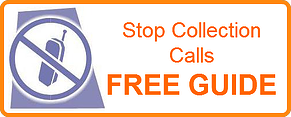Receiving a summons can be a very stressful situation! Here's what you should know about a summons and more importantly, what you need to do about it:
It seems like a week doesn't go by that a prospect or one of our clients receives a SUMMONS.
Most of the time, a SUMMONS is delivered to you at home. But in some cases, it may be mailed by certified mail or delivered to your place of employment.

Before I explain what you need to do, you need to know why this is happening and what you can do to prevent it in the future!
When you find yourself in a financial hardship due to any number of reasons, most likely, you just can't afford to keep up with the minimum payments due on your credit accounts.
At first, after the creditor doesn't receive the payment that is due, you will get a statement with a warning (along with extra LATE FEES and added INTEREST) telling you how much you need to send in this month to catch up.
When you can't make that payment (and of course, you can't), you may start getting calls from a representative of the company.
I know you would like to explain your situation and would like to get a "little sympathy", but most of the time, the rep just doesn't care.
I suggest that you either ignore those calls or if you just can't resist, say something like:
"I'm going through a very hard time and just cannot afford to make any payments at this time. I plan to get caught up in the near future, but for now, please stop calling me!"
Don't wait for an answer, just HANG UP.
Most likely, the calls will either stop or slow down and now you'll start getting letters.
These letters may threaten to "charge off" your account and turn it over to a debt collector or to an attorney.
This usually happens after 3-4 months of non payment, but sometimes, they may wait 6 months or more.
But, at some time, they will send these accounts to a collection agency or a law firm that deals mainly with debt collection.
Now, you will start getting calls and letters from them.
You can also put a stop the calls now (before, the original creditor had the right to call you).
This will explain:
If your circumstances don't change, and you can't negotiate a repayment or settlement agreement with the collectors, they may decide to start their "legal options" by filing a claim.
Once the claim (legal claim that you owe the debt) a SUMMONS will be delivered or sent to you.
The SUMMONS is going to say something like:
"You must APPEAR and give an ANSWER to this claim."
Without going into a long explanation, this basically just means that if you don't owe the money the PLAINTIFF is CLAIMING, you (the DEFENDANT), must provide PROOF to the court.
This must be done in a short period of time (usually 20-30 days from the date of delivery) and it must be in "legally correct form" which usually requires an attorney's help.
Most of the time, you (the Defendant), owes the money, so when you don't give an ANSWER to the court, then the the attorney may apply to the court for a date in order to be awarded a JUDGMENT by DEFAULT.
Before this happens, here's what you need to do....
Even if the summons has been delivered, the creditor (plaintiff) may still be willing to accept a SETTLEMENT or a STIPULATED AGREEMENT:
Debt Settlement
Depending on your particular circumstances, you may be able to negotiate a settlement/reduced payment of the balance.
For example, if you are retired and receiving only Social Security or Retirement benefits as your only source of income, these funds are 100% EXEMPT from any levy or garnishment even if a judgment has been awarded!
If you are disabled, and only receiving SSI and/or Disability Benefits, these are also 100% EXEMPT from any levy or garnishment.
There are several other situations where you may have LEVERAGE to negotiate a settlement.
It's not easy, but very possible. We do this everyday for many of our clients:
Stipulated Agreement
If you cannot negotiate a settlement, the law firm may apply to the court for a WRIT OF GARNISHMENT.
With this, they can GARNISH YOUR WAGES and/or FUNDS IN YOUR BANK ACCOUNT! For most people, this would be devastating.
Many times, a creditor (or attorney for the plaintiff), may be willing to agree to a series of payments to repay the debt instead of garnishment. Of course, by now, the balance is much more due to interest, fees, court costs, etc.
As long as you meet the terms of the agreement, the attorney will not go forward with a garnishment or bank levy.
As you can see, a SUMMONS is serious and you can't ignore it!
I hope this information has helped, but if you feel like you need more information, then click here:
Program Comparison
Click here!







